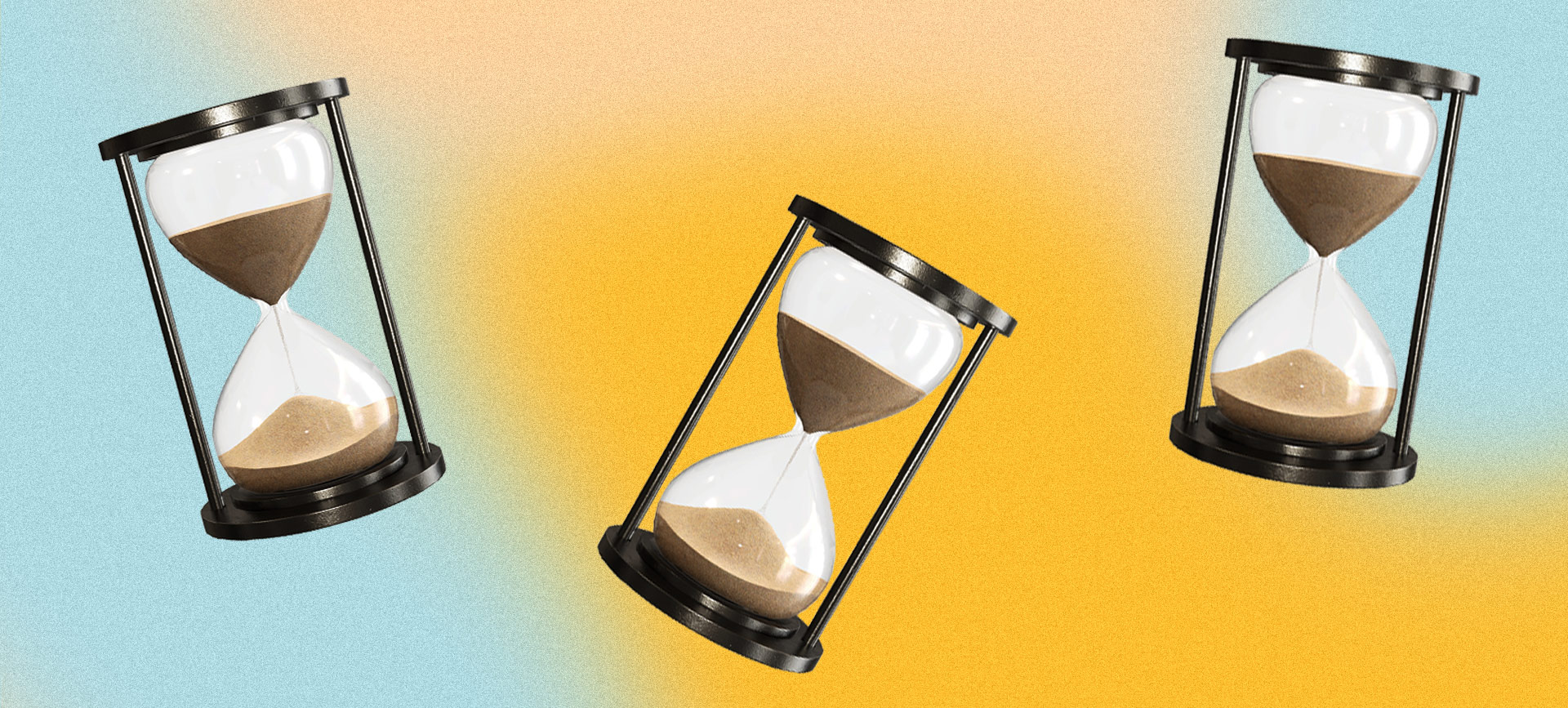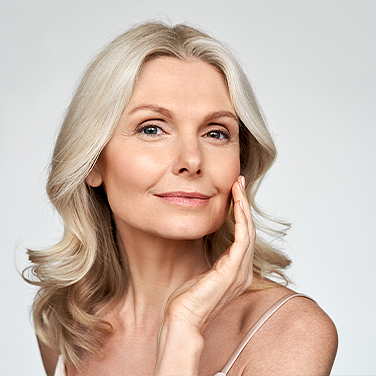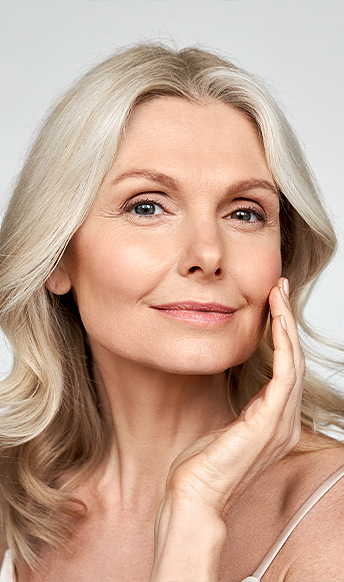As the old adage goes: Aging ain't for sissies.

How the Vagina Ages: An Owner's Guide
Welcome, vagina owners, to a journey through the years. As the old adage goes: Aging ain't for sissies. Memory issues, aches and pains, stiff joints, decreased energy, wrinkles and sagging skin—it's tough stuff, and age-related changes to the vagina and reproductive system can be particularly challenging. As women, we have to manage the inconsistency of our menstrual cycle and the often uncomfortable aspects of monthly periods, then endure perimenopause, that wild transition of roller-coaster hormones, until finally experiencing all the side effects of full menopause that can wreak havoc on our vagina. Happily, there are a multitude of options to help us deal with and minimize these symptoms so we can live comfortably, and keep loving our bodies and our sex lives.


Let's start with the reproductive years, also known as the decades many women spend worrying about one of two things: getting pregnant or not getting pregnant. Females enter reproductive years at puberty, which typically occurs around age 11, but can range from 8 to 14. Pubic hair grows and thickens, hips widen, breasts develop, and hormones trigger monthly release of an egg, or ova, from the ovaries. When that egg isn't fertilized and doesn't implant in the uterus, the unnecessary endometrial lining sheds off the uterine wall during a four- to six-day period that's most commonly every 28 days (don't panic if your period or cycle is longer or shorter—that's common). Much to the dismay of most of us, periods often go hand-in-hand with cramps, bloating, sore breasts, headaches, cravings, fatigue and irritability.
Periods—and the hormone system behind them—serve a critical purpose, as part of the biology of pregnancy and birth. Bearing a child has its own difficulties: Some women experience perineal tears, prolapse of the uterus, bladder or vagina, sagging labia, pelvic floor damage and incontinence. Sexually active women are most prone to sexually transmitted infections (STIs) during early reproductive years—effective condom use can help keep you safe. Cervical cancer risk also increases significantly during this time, and is associated with the human papillomavirus (HPV).
Symptoms may wax and wane along with estrogen levels.

As you near the end of your reproductive years, five to 10 years prior to menopause (in your late 30s or early 40s), you will enter perimenopause, a transitional period during which hormones estrogen and progesterone spend the better part of a decade going haywire and causing some interesting side effects. This happens because the body is preparing for menopause, the end of its potential for pregnancy: changes in the ovaries cause estrogen and progesterone levels to rise and fall before steadily declining. Irregular periods, worsening premenstrual symptoms, hot flashes, breast tenderness, increased urinary tract infections (UTIs), vaginal dryness, discomfort during sex, mood swings and insomnia are common. Symptoms may wax and wane along with estrogen levels, and typically worsen in the years just before menopause.

Menopause manifests itself differently for every woman.


Unfortunately, it doesn't end at perimenopause. Even if you haven't gone through menopause, you've likely heard and read plenty about the symptoms. Menopause marks the end of the release of eggs by the ovaries and is defined as 12 consecutive months without a period. Periods stop, and pregnancy through natural means is no longer possible. While an end to monthly periods may sound like a relief, other aspects of menopause probably won't. Some perimenopause symptoms continue, along with bloating, chills, headaches, decreased sex drive, difficulty concentrating, joint and muscle pains, decreased metabolism and subsequent weight gain, night sweats, thinning hair and drying skin. Breasts may decrease in size and fullness. Menopause manifests itself differently for every woman, and many report worse symptoms during perimenopause than menopause itself.
The average female undergoes menopause at age 51, though this can range from the mid-40s to mid-50s. Early and premature menopause may be caused by surgeries (hysterectomy, oophorectomy), smoking, chemotherapy or radiation, family history, and certain medical conditions and infections. Risk for ovarian cancer increases with age—women should be on the lookout for vague pelvic symptoms that may be a sign of a disease which is notoriously difficult to diagnose.
A wide array of medications and therapies can help keep you comfortable.

The thought of facing these symptoms might sound pretty daunting, but fear not—science is working in your favor, and a wide array of medications and therapies can help keep you comfortable. Hormone replacement therapies (HRTs) restore estrogen levels, providing relief for vaginal dryness and itching, hot flashes, night sweats, insomnia, and improving sex drive and comfort during intercourse. By increasing circulating estrogen, HRT also decreases risk of osteoporosis, stroke, heart disease and dementia. (Be advised, though: As helpful as HRT is, it may not be safe for women with a history of breast or uterine cancer, or heart or liver disease.) Vaginal creams, tablets and rings can locally replenish estrogen to address vaginal and urinary symptoms. Gabapentin or SSRI antidepressants may reduce hot flashes. In short, there's help.



At our last stop through the years of a vagina, we're gonna talk about those golden, post-menopause years. All throughout your life, aging will continue to impact the vagina. Post-menopause, skin becomes thinner and prone to sagging and wrinkles. Pubic hair may gray and thin. Women not taking estrogen treatments may continue to battle vaginal dryness and discomfort. The vagina itself can atrophy (shrink), becoming shorter and less elastic, which can make penetrative sex uncomfortable. Using ample water-based lubricants can help significantly, as can having sex itself. Pelvic floor exercises, therapeutic massages or talking with a sex therapist can further assist in combating discomfort and keeping your sex life vibrant.
So, aging ain't for sissies, but women are warriors. Whether you're 65 and nodding along in recognition, or 25 and anxious about aging, there's a lot of help out there to make sure you and your vagina can enjoy a long and happy life together.
There's a lot of help out there to make sure you and your vagina can enjoy a long and happy life together.









